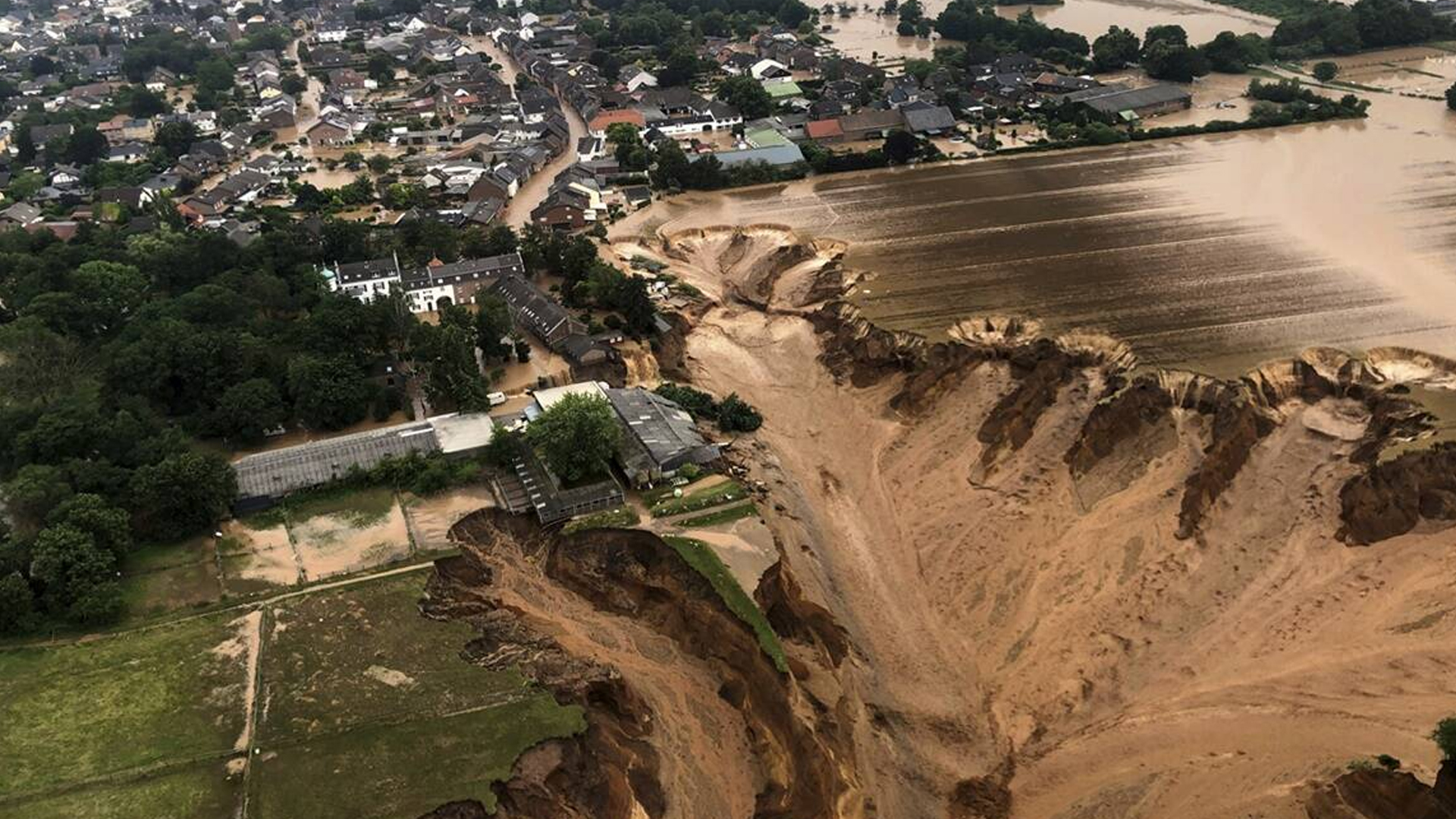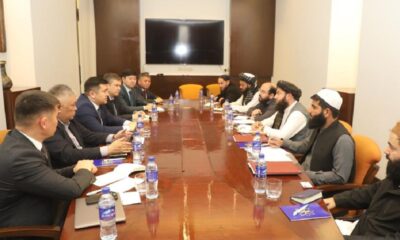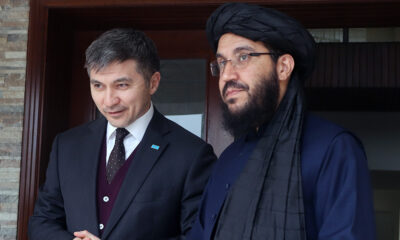Technology
Climate change made deadly Europe floods at least 20% more likely: Study

Climate change has made extreme rainfall events of the kind that sent lethal torrents of water hurtling through parts of Germany and Belgium last month at least 20% more likely to happen in the region, scientists said Tuesday.
The downpour was likely made heavier by climate change as well. A day of rainfall can now be up to 19% more intense in the region than it would have been had global atmospheric temperatures not risen by 1.2 degrees Celsius above preindustrial temperatures, according to research published by the World Weather Attribution (WWA) scientific consortium.
“We will definitely get more of this in a warming climate,” said the group’s co-leader Friederike Otto, a climate scientist at the University of Oxford told Reuters.
“Extreme weather is deadly,” said Otto, recalling that she urgently contacted family members who live in the affected areas to make sure they were safe when the floods hit. “For me it was very close to home.”
With extreme weather events dominating news headlines in recent years, scientists have been under increasing pressure to determine exactly how much climate change is to blame.
During the last year alone, scientists found that U.S. drought, a deadly Canadian heat wave and wildfires across the Siberian Arctic have been worsened by a warming atmosphere.
The July 12-15 rainfall over Europe triggered flooding that swept away houses and power lines, and left more than 200 people dead, mostly in Germany. Dozens died in Belgium and thousands were also forced to flee their homes in the Netherlands.
“The fact that people are losing their lives in one of the richest countries in the world — that is truly shocking,” said climate scientist Ralf Toumi at the Grantham Institute, Imperial College London, who was not involved in the study. “Nowhere is safe.”
Although the deluge was unprecedented, the 39 WWA scientists found that local rainfall patterns are highly variable.
So they conducted their analysis over a wider area spanning parts of France, Germany, Belgium, the Netherlands, Luxembourg and Switzerland. They used local weather records and computer simulations to compare the July flooding event with what might have been expected in a world unaffected by climate change, Reuters reported.
Because warmer air holds more moisture, summer downpours in this region are now 3-19% heavier than they would be without global warming, the scientists found.
And the event itself was anywhere from 1.2 to 9 times — or 20% to 800% — more likely to have occurred.
That broad range of uncertainty was partly explained by a lack of historical records, WWA explained, and worsened by the floods destroying equipment that monitored river conditions.
Still, the “study confirms that global heating has played a big part in the flooding disaster,” said Stefan Rahmstorf, a scientist and oceanographer at the Potsdam Institute for Climate Impact Research, who was not involved in the study.
“This is in line with the finding of the recent IPCC report, which found that extreme rainfall events have increased worldwide,” he added, referring to a U.N. climate panel’s findings.
Technology
British army’s Twitter and YouTube accounts hacked, flooded with crypto spam

The British Army has confirmed a “breach” of its accounts and launched an investigation after its YouTube channel featured videos on cryptocurrency and images of billionaire Elon Musk, while its official Twitter account retweeted several posts appearing to relate to NFTs.
An NFT, or non-fungible token, is a distinct cryptographic token that cannot be replicated and acts as a certificate of ownership for virtual items.
At one point the account name was changed to Bapesclan and the profile picture to an ape-like cartoon figure in clownish make-up, Sky News reported.
The Twitter account was restored to normal by Sunday evening.
A tweet posted afterwards read: “Apologies for the temporary interruption to our feed. We will conduct a full investigation and learn from this incident. Thanks for following us and normal service will now resume.”
The YouTube account also appeared to have its usual videos restored.
Technology
Thrive By Five app officially launched in Afghanistan to boost early learning

Afghanistan’s largest private philanthropic organization, The Bayat Foundation, on Tuesday officially launched a new early childhood development (ECD) initiative, which was broadcast live on Ariana Television.
The initiative, in the form of an innovative mobile phone application, Mano Kodakam, is aimed at increasing awareness around the importance of a child’s early years, and empowering Afghan parents and caregivers to give their children the best start in life.
The initiative was warmly welcomed by not only doctors and psychologists in the country but also by the Islamic Emirate of Afghanistan’s (IEA) Ministry of Public Health.
Mohammad Hassan Ghiasi, Deputy Minister of Policy and Planning at the Ministry of Public Health, attended the launch and stated the app was in line with Afghan culture and values.
He pointed out the benefits of the app for children including the positive psychological impact it will have on them.
He said the new application comes at a critical time in the country’s history, as there is a need for “repairs” to the country’s “cultural infrastructure”.
“Afghanistan is a country that has gone through four decades of problems and war and our cultural infrastructure has been kind of destroyed and needs to be repaired, and we need to be careful during our repairs,” he said adding that “during our repairs we must be cautious that we minimize the psychological damage to our next generation as much as possible, and I think this app (Mano Kodakam) is the beginning of that start.”
Zakaria Barakzai, a psychologist who was also present at the launch, said: “In the past, many parents thought their children had autism and did not know why their child did not talk until the age of four … fortunately, all these problems have been considered in this app.”
Barakzai also pointed out how important it was to stimulate a young child.
“If a child acquires courage, wisdom, awareness, and in some cases patience, this can only be found through playing, so that is why we recommend playing with children in their first, second and third years; but in the area of play, if they need help, or a partner, fortunately the app that was created can cover all of these issues.”
According to Aisha Stanikzai, a journalist who has familiarized herself with the new application, parents are often too busy to spend much quality time with their children.
“Most of the time, parents are busy and can’t take good care of their children, and by giving toys to their children, they think they have taken care of their children, but they do not realize what their child really needs,” she said.
“Parents should communicate with their kids to really know what their child needs, and the creation of such an application can be important in the part of communicating with their children and in the part of guiding parents on how to communicate with their children.”
Mano Kodakam – an innovative approach to early childhood development
Named ‘Mano Kodakam’, this innovative application aims to inspire parents and caregivers to have more frequent, quality interactions with children and improve their behavior by highlighting do-able and desirable actions such as simple activities like “peek-a-boo” that are scientifically proven to have a significant impact on a child’s development.
Bayat Foundation Executive Director, Mrs. Fatema Laya Bayat, stated: “Children need nurturing care and playful parenting right from the start in order to support their brain development and future potential. Mano Kodakam aims to give Afghan parents and caregivers the knowledge they need during their precious early years. The science shows that it’s the little moments of connection and interaction, repeated often and especially during the toughest of times, that can make all the difference.”
The app has both Dari and Pashto versions available for free on both IOS and Android operating systems, and is accessible even on lower tech, older mobile devices. Much of the core information will also be made available via a range of channels including social media, SMS, radio, television, as well as, in print and digital media.
“Every Afghan child, no matter where they live, has a right to the best possible start to life,” stated Bayat Foundation co-founder, Dr. Ehsan Bayat.
‘Mano Kodakam’ content is based on in-depth anthropological analyses of global parenting and community norms, gender roles and parenting roles, as well as the specific religious, cultural and environmental factors of Afghanistan.
The Bayat Foundation worked in partnership with Australia’s Minderoo Foundation, in collaboration with the University of Sydney’s Brain and Mind Centre to ensure the most advanced neuroscience and the practices of child-rearing were merged with Afghan traditions to create an environment that will help each Afghan child to reach their maximum cognitive and emotional potential.
To download the app visit: www.thrivebyfive.com/fa-AF
Technology
US probes sabotage of satellite internet during Russian invasion

Western intelligence agencies are investigating a cyberattack by unidentified hackers that disrupted broadband satellite internet access in Ukraine coinciding with Russia’s invasion, Reuters reported on Saturday.
Analysts for the US National Security Agency, French government cybersecurity organization ANSSI, and Ukrainian intelligence are assessing whether the remote sabotage of a satellite internet provider’s service was the work of Russian-state backed hackers preparing the battlefield by attempting to sever communications, Reuters reported citing sources.
The digital blitz on the satellite service began on Feb. 24 between 5 a.m. and 9 a.m., just as Russian forces started going in and firing missiles, striking major Ukrainian cities including the capital, Kyiv.
The consequences are still being investigated but satellite modems belonging to tens of thousands of customers in Europe were knocked offline, according to an official of US telecommunications firm Viasat, which owns the affected network.
The hackers disabled modems that communicate with Viasat Inc’s KA-SAT satellite, which supplies internet access to some customers in Europe, including Ukraine. More than two weeks later some remain offline, resellers told Reuters.
Pablo Breuer, a former technologist for US special operations command, or SOCOM, said knocking out satellite internet connectivity could handicap Ukraine’s ability to combat Russian forces.
“Traditional land-based radios only reach so far. If you’re using modern smart systems, smart weapons, trying to do combined arms maneuvers, then you must rely on these satellites,” said Breuer.
Russian soldiers have besieged Ukrainian cities. The invasion has been denounced by the West as an unprovoked assault and it has led to severe sanctions against Moscow as punishment.
-

 Latest News4 days ago
Latest News4 days agoGermany speeds up admission of Afghans from Pakistan
-

 Sport4 days ago
Sport4 days agoIPL 2026 Auction set for Abu Dhabi with $28.6 million purse at stake
-

 Business5 days ago
Business5 days agoAfghan economy posts second year of growth despite deep structural challenges
-

 Latest News4 days ago
Latest News4 days agoAfghanistan to establish independent oil and gas authority
-

 Sport5 days ago
Sport5 days agoATN to broadcast ‘The Best FIFA Football Awards 2025’
-

 Latest News4 days ago
Latest News4 days agoUS intelligence chief warns of ‘direct threat’ from suspected terrorists inside the country
-

 International Sports5 days ago
International Sports5 days agoILT20: Jahangir powers Dubai Capitals to nine-run win over Abu Dhabi Knight Riders
-

 Latest News3 days ago
Latest News3 days agoIEA supreme leader stresses enforcement of Sharia law and sincere public service

























